Thai Pride in Global Entertainment: Passion, Talent and Impact
Thai entertainment has long thrived within Asia, and now, steadily and powerfully, ...
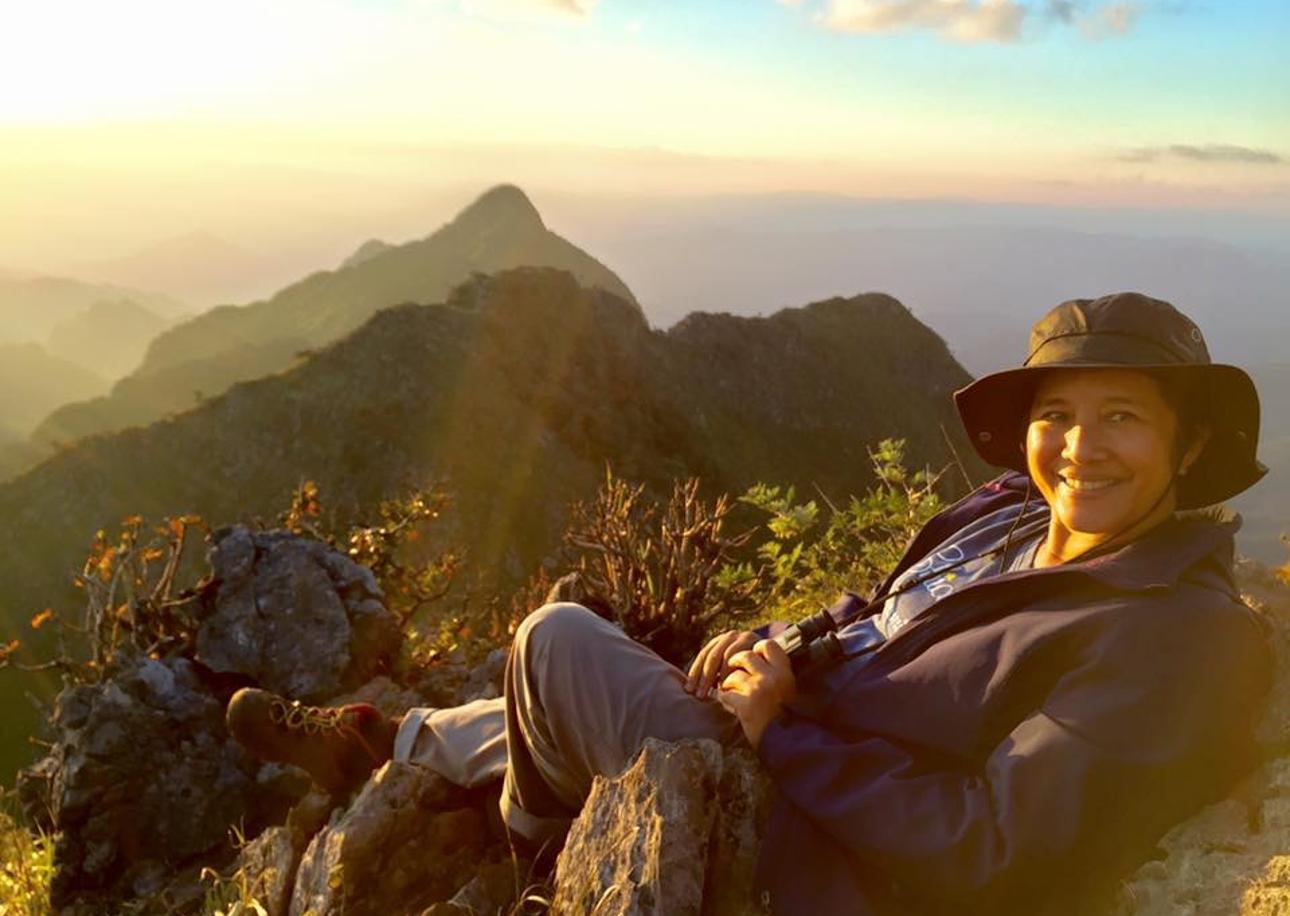
[This story originally appeared in Koktail Magazine issue 2.]
The lifestyle is idyllic. The setting? A simple gabled house set in a 30-rai expanse of wetland and rice fields against a backdrop of the majestic Doi Luang Chiang Dao mountain in the northern province of Chiang Mai. It’s what urban dwellers can only dream of as they face their demanding daily schedules, traffic chaos and air pollution. But for Dr Saranarat Kanjanavanit, this is her chosen lifestyle. Yet it’s far from a life of leisure because every single leaf and bug that comes across her path becomes part of an ongoing research into the ecology of the region, and how to restore biodiversity to a neglected land.
Prior to her Chiang Mai existence, Dr Oy—as she is better known—was the chairperson of the Green World Foundation, which empowers citizens of all age groups to learn and assess the state of the local environment through observation. This was done through various workshop programmes such as Environmental Detectives, Stream Detectives, Seashore Detectives and Air Detectives.
It was at one of these workshops in Chiang Dao 20 years ago that she fell in love with this particular district of Chiang Mai. Looking out from the rice fields just east of Doi Luang, she was struck by the pure and majestic power of the mountain, and when the opportunity arose, she started investing in property. The land in the area was crisscrossed with a system of ditches dating back two centuries. Then, 10 years ago, she began digging ponds and building a house for herself.
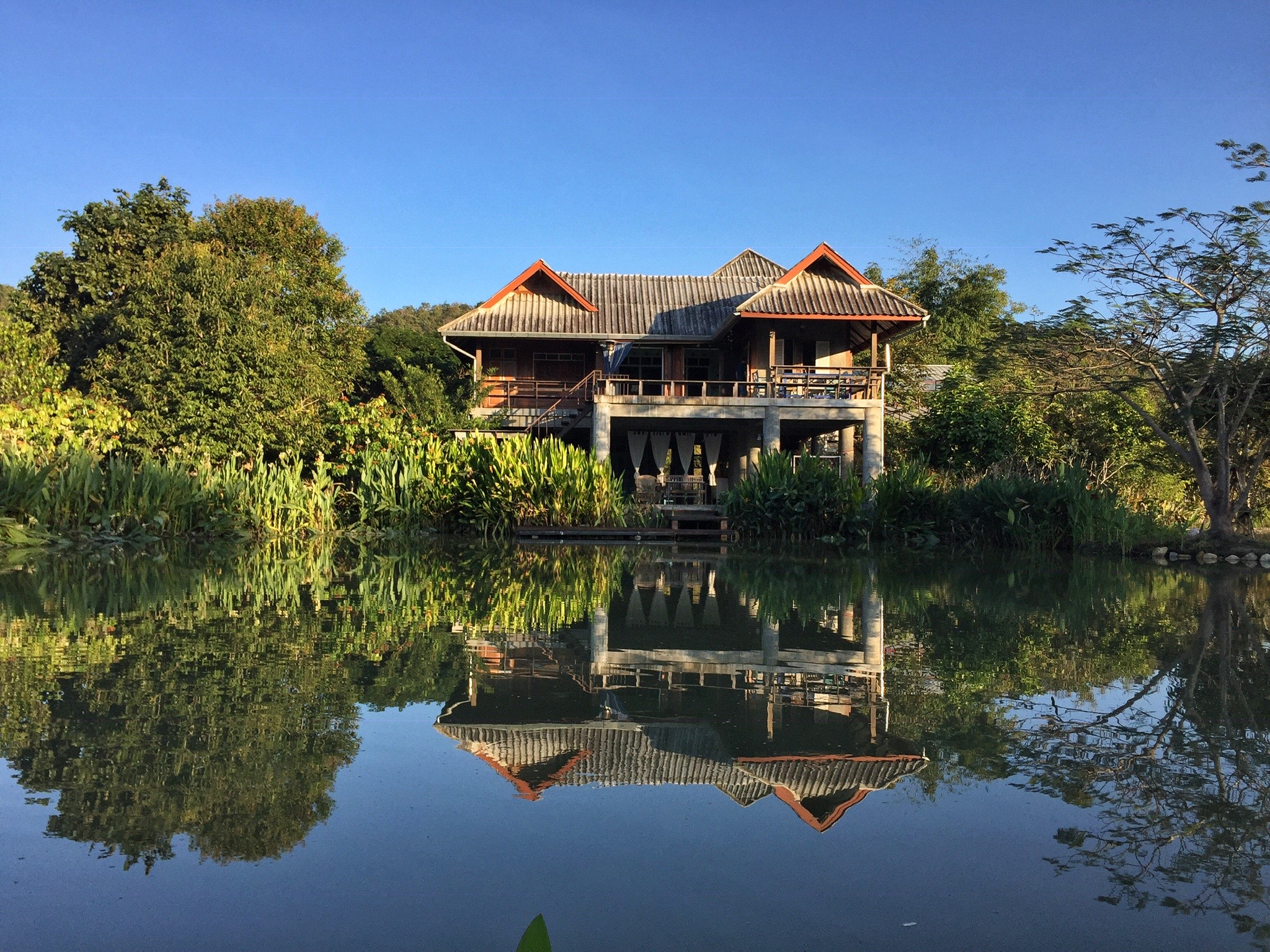
Despite the pastoral environment, local people indicated to her that things had changed over the years, particularly the biodiversity. “When I was young,” they would say, “I used to be able to catch wild betta—Siamese fighting fish—in the area.”
It seems her work had been mapped out for her. So when Covid-19 hit and all workshops had to be put on hold, she decided it was as good a time as any to take up residence in Chiang Dao and start re-wilding her land.
It was christened Nunienoi Wetland after her parents: the late MR Smansnid Svasti, or Nunie, and Dr Rachot Kanchanavanit, or Noi. The most important step after building the house was designing a natural water treatment system comprising four linking ponds through which water from outside sources would be gradually filtered by porous rock walls, vegetation bands of natural grasses and aquatic plants, and naturally oxygenated along its winding route between ponds. The clean water in the final pond would also be used for watering the rose garden.
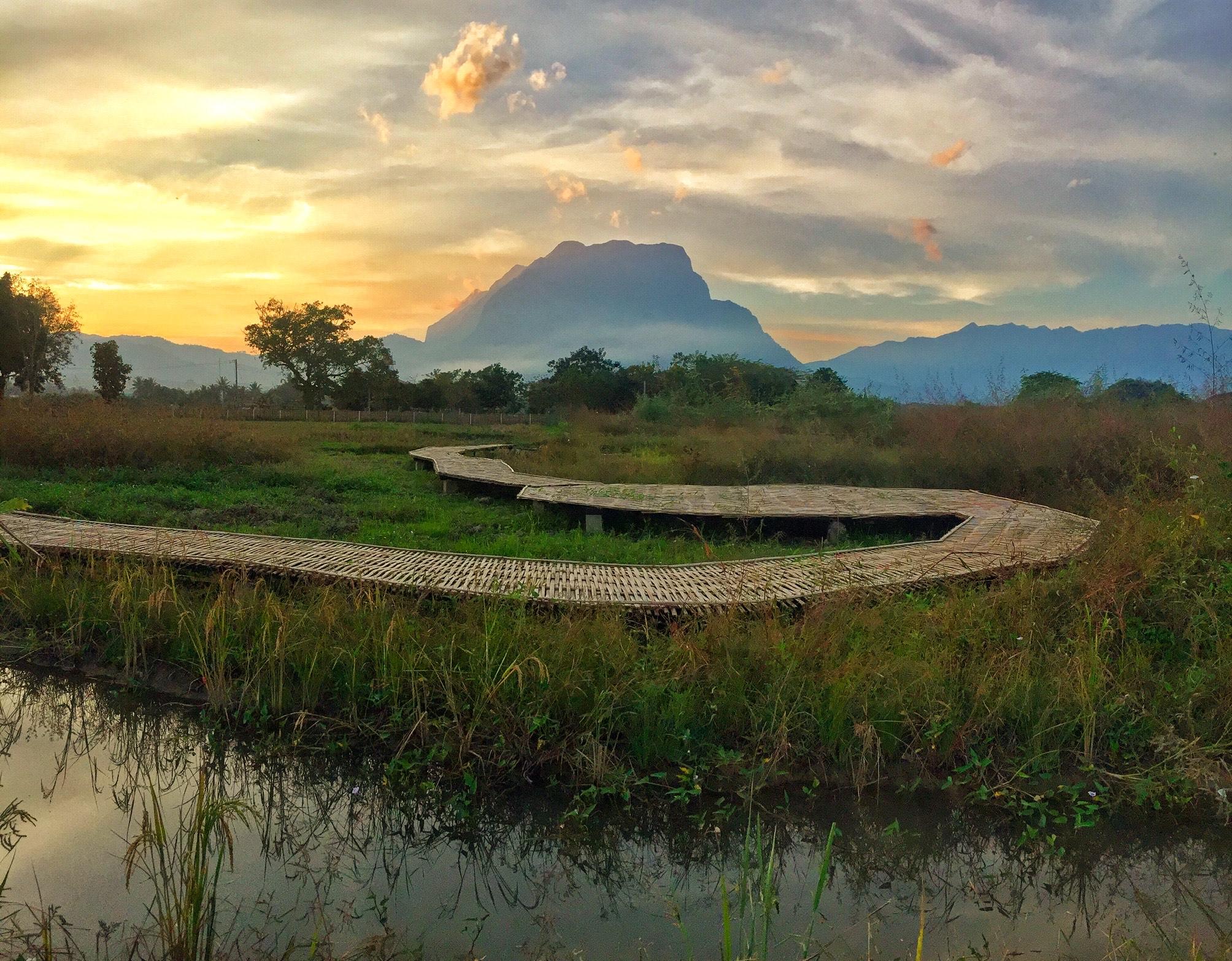
With the revival of the natural habitat, it wasn’t long before Dr Oy noticed the arrival of wildlife that had all but disappeared from the area. The beautiful betta fish were back in the ponds without having to be reintroduced. Otters were spotted, as were snapping turtles, along with a plethora of birds such as the vivid Crimson Sunbird. Water hens also started nesting and laying eggs.
The organic rose garden was an unexpected crop that was planted out of the local demand from the hotel industry. The pandemic put this demand to a halt, so Dr Oy had to devise various ways of processing roses and rose petals. As a result, the Nunienoi brand began to offer such products as organic rose petal tea, rose petal jam, rose water, rose petal syrup and pickled rose petals. Each product required a lot of trial and error in order to make it fully organic. The commercial pectin used to make jam usually comes in powdered form, but Dr Oy experimented by extracting pectin from lemon seeds. The bitter lemon and ginger marmalade is another popular product.
Similarly, Nunienoi’s organic rice fields have been able to yield crops of hom mali rice which goes through their own rice mill before packaging. Admittedly not an agriculturist, Dr Oy felt she needed to understand the problems faced by pro-life farmers who shun chemical fertilisers, which are as toxic a pollutant as fossil fuel, but not receiving the same level of scrutiny due to the power of big industry. She noticed that farmers in Thailand do not have any bargaining power and should be recognised not just as rice growers, but as land managers and protectors of the environment. Instead of planting another rice crop immediately after harvesting, gaps should be allowed between crops for the soil to revive.
“In some countries, farmers are paid to keep parts of their fields unused to allow migratory birds to take refuge,” she noted.
Growing organic rice, as Dr Oy discovered, is not an easy process and requires patience, higher investment in terms of finance and time and greater effort to induce growth rather than depending on chemical fertilisers. Without the use of fertilisers, however, ladybugs began to appear to feast on the undesirable rice aphids, providing a natural form of pest control.
Marketing, as she discovered, was the major obstacle for organic rice farmers. With their reliance on middlemen rather than any government support system, it is almost impossible for farmers to move away from conventional farming practices.
Nunienoi rice crops are alternated with soybeans, which are known to increase soil nitrogen levels. From soybeans, Dr Oy makes her own soy sauce, soy milk and tofu. Wild russala mushroom have also been on her household menu, springing up after a burst of rain.
The wetland and rose garden has yielded some 50 species of spiders, to the delight of Thai arachnologists. Dr Oy also offers a biology residency at the wetlands. A study on local birds is also on the cards.
In keeping with her former role at the Green World Foundation, Dr Oy hopes to use Nunienoi Wetland as a base for educational workshops on rose petal products and natural connection, from basic nature observation methods to nature communication with species of flora and fauna. “It’s a kind of telepathy, but if we train our minds, it’s not that difficult since it’s a natural process.”
When she has a free day, she indulges in one of her favourite activities: hiking to recce new trails and to observe the natural flora that are key indicators of the health of the environment, such as lichen on trees.
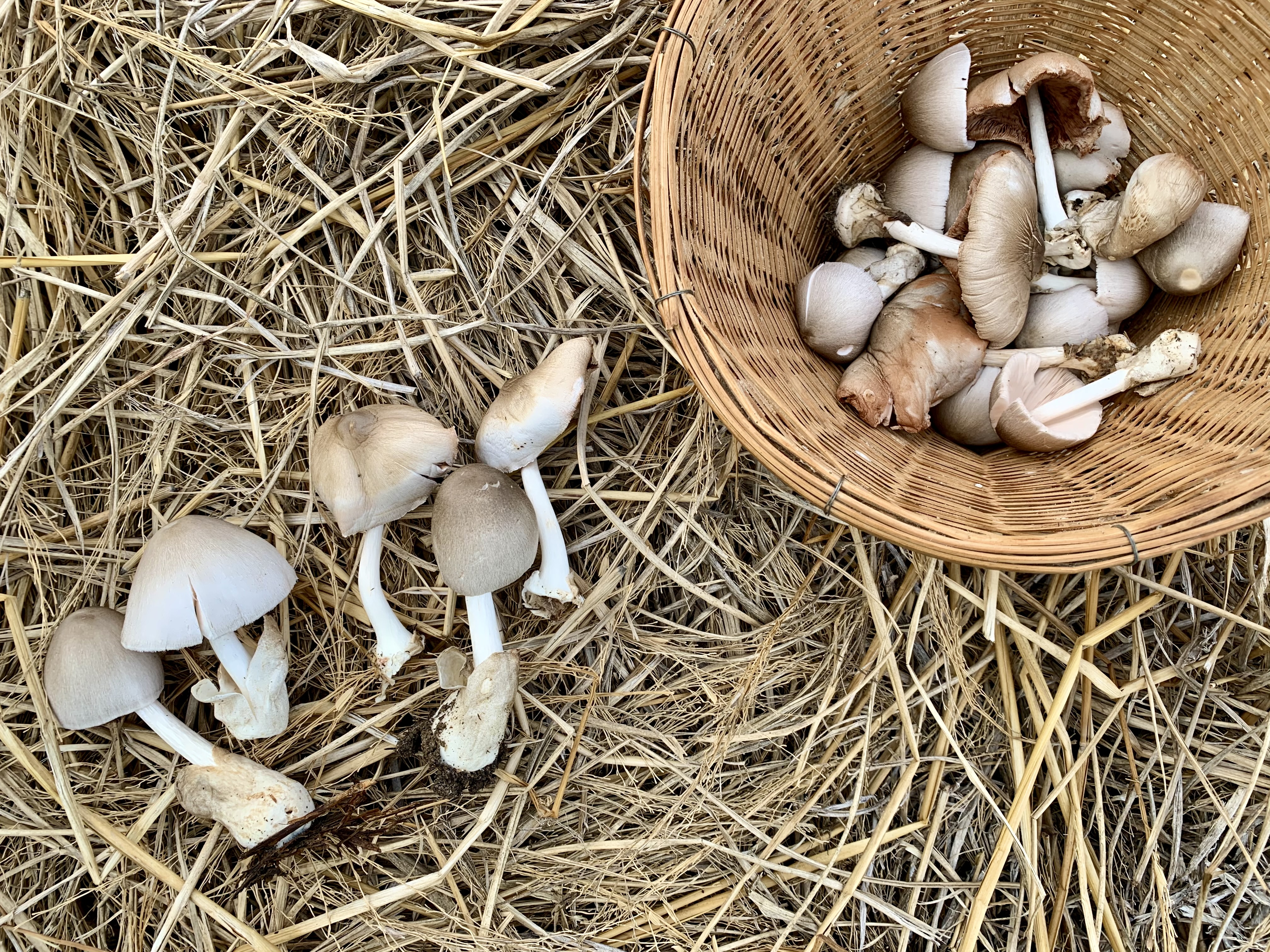
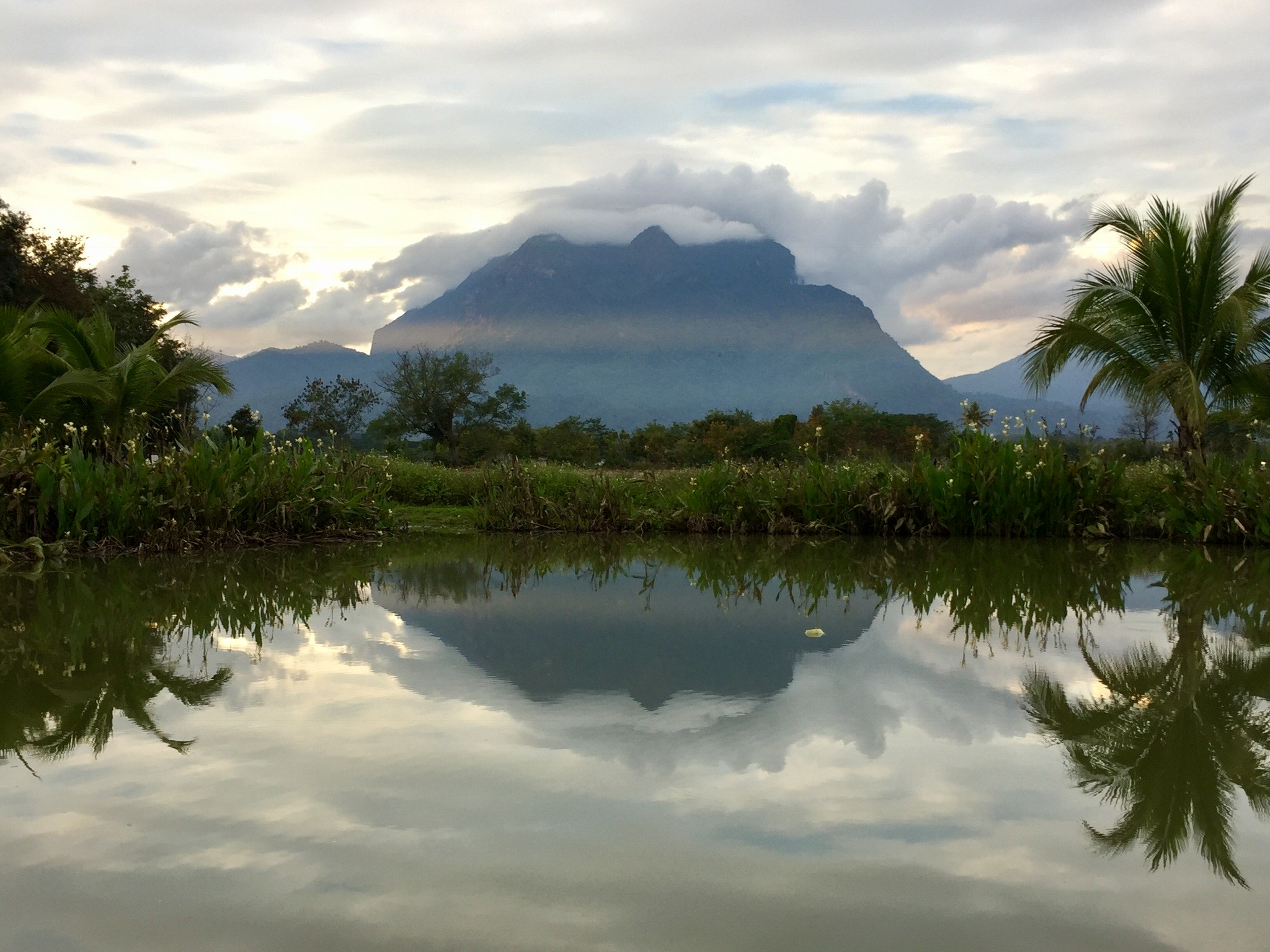
A view of Doi Luang, Chiang Dao
Despite this idyllic lifestyle, she is still very much involved in her advocacy of the environment, which is her life’s passion. First and foremost, she would like the government to put on hold every single project that will have repercussions on the environment, then sit down together with all sectors and empathetically come up with commitments that respect facts and science.
“We are running out of time. We need to transition from a lifestyle that exploits nature to a truly sustainable society within this decade. But even after decades of building awareness, nothing has really changed and we’re at a dead end. We are still talking about cloth shopping bags, and the government is still spewing out catchy slogans! There needs to be a total structural change and government commitment starting from the top.”
Meanwhile, she is eager and excited to wake up early every morning and go out to observe the minute changes on the land. For someone to be able to live out their passion on a daily basis, this is the ultimate form of ikigai.
When asked to describe herself, she answered, “The Naturalist in Wonderland”, finding excitement and new discoveries with every step of her journey.
“Every morning, I see magic in every little thing, and the magic increases all the time, like Alice in Wonderland. It’s being able to work on something that gives me joy, something that is useful, fun and applicable, and something that constantly renews your sense of wonder.”
In a way, the seven-circuit Cretan labyrinth—a path of concentric circles—that she created on a grassy knoll at the wetlands is a symbol of this ikigai.
“It is a form of landscape art,” she explained. “But it also dates back to pagan rituals that embody a sense of restoration, healing contemplation, protection, reflection and spiritual experience. Similarly, it is related to the concept of Buddhist walking meditation.”
Though the path may be long and winding, it draws you eventually to the centre where you may reach a sense of spirituality and purpose.
For Dr Oy, it’s the story of her life.
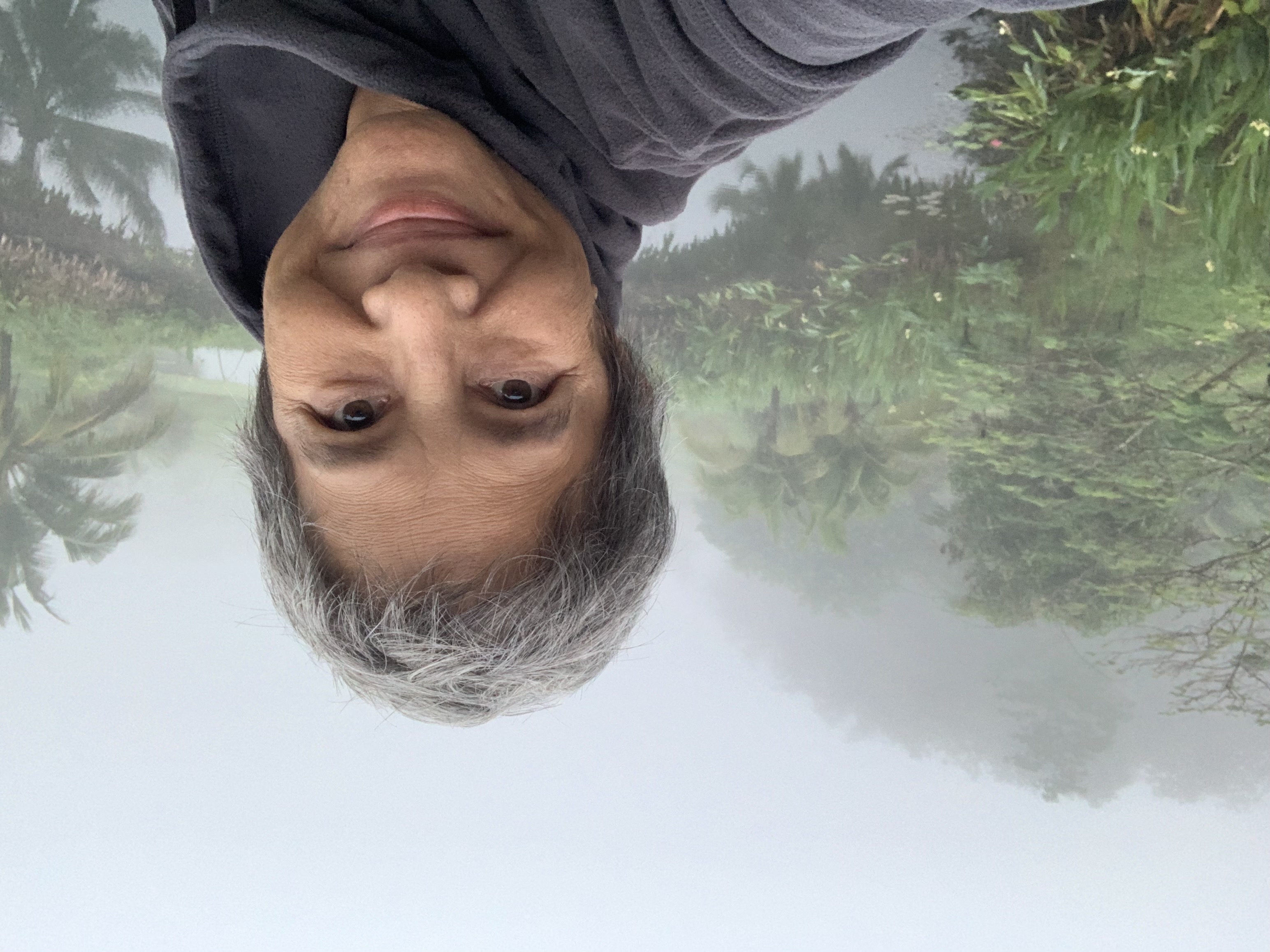
Thai entertainment has long thrived within Asia, and now, steadily and powerfully, ...
While traditional TV shows are serving us endless boy-meets-girl tales. Thailand has ...
Netflix Thailand has officially announced a new price for base subscriptions We’ve ...
Celebrate New Year at Gaysorn with Disco Diaries' Sparkling NYE party and ...
Must-have gadgets for kids in the Y2K are, predictably, making a comeback ...
Turn ordinary moments into extraordinary masterpieces in these fun art workshops in ...
Wee use cookies to deliver your best experience on our website. By using our website, you consent to our cookies in accordance with our cookies policy and privacy policy